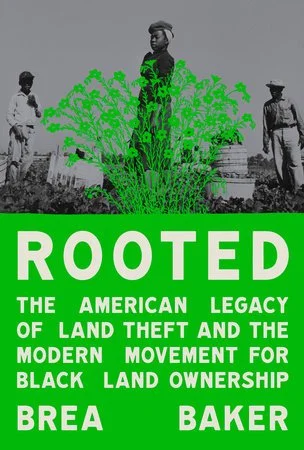Black Land Back Is Non-Negotiable! Author & Activist Brea Baker on Reparations, Nature-based Healing and Reclaiming Community Power
Season 1 | Episode 18
MORE ABOUT BREA
Brea Baker is a writer and activist whose book, ROOTED: The American Legacy of Land Theft & The Modern Movement for Black Land Ownership, was published with PRH/One World Books. ROOTED details her family’s experiences across the South and makes another case for reparations to include land distribution. ROOTED has been celebrated in The New Yorker, The Guardian, Apple Books, the New York Times, iHeart Radio’s The Breakfast Club, Harper’s BAZAAR, Ms. Magazine, and more. Brea also regularly contributes reported op-eds and personal essays to ELLE and Refinery 29 Unbothered. With a B.A. in Political Science from Yale University, Brea believes deeply in political imagination and the need for nuanced storytelling. She is a collective member of BLIS (Black Liberation, Indigenous Sovereignty) as well as the Highland Project, and is on the board of The Gathering for Justice and Black Farmers’ Market NC.
“It just takes so much wealth because it’s been so privatized in our country. But what a beautiful thing for little Black kids to grow up knowing the beauty of a mountain up close, knowing the beauty of a pristine lake or river, knowing how to fish, knowing how to hunt, being able benefit from that. And so that’s something that I really am working still on decolonizing my mind around and saying, is this why people stuff or have I just been conditioned to not even think that I wanted it? Meanwhile, they are getting to enjoy all of the eco pleasures while I am breathing in toxic air and drinking in lead infested.”


